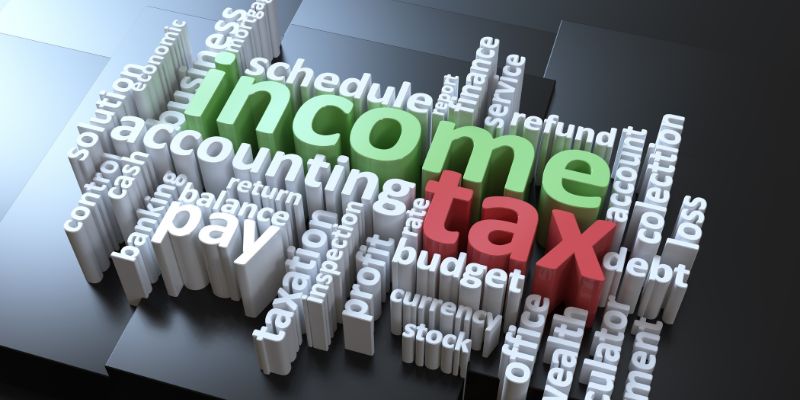Who Will Pay Colorado State Income Tax In 2024
Jan 14, 2024 By Triston Martin
Colorado is one of the eleven union states with a flat income tax rate of 4.4% for the 2023–2024 tax year. The state automatically extends taxes for six months, so anybody looking for extra time to file their taxes can take advantage of this perk with an April 15, 2024 deadline.
It is important to remember, nevertheless, that taxpayers must make sure they have paid at least 90% of their tax bill before the first filing date to avoid penalties and interest. Colorado citizens and non-residents making income inside the state's borders must comprehend these tax complexities.

Colorado's Standard Deduction
One way Colorado sets itself apart from the rest is that it does not have a state standard deduction for taxes. This variation results from the state's use of a person's federal taxable income as the primary factor in determining Colorado tax obligations. The use of the taxpayer's itemized deductions or the federal standard deduction is already factored into the federal taxable income. As a result, Colorado bases the amount of state taxes due on this federal taxable income.
Nevertheless, it's important to remember that certain single and joint filers with incomes over specified limits may have to consider some federal itemized deductions in determining their Colorado taxable income. Due to the additional complexity this adjustment brings, those in higher income categories will need to reevaluate how their deductions may affect their Colorado state tax obligations. Taxpayers are recommended to visit the Individual Income Tax Guide on the official website of the Colorado Department of Revenue for detailed explanations and information on how this applies.
Colorado State Income Tax Rates and Tax Structure
Colorado's state income tax system had a significant shift in the tax year 2023, which affected returns submitted in 2024. The state's income tax rate was lowered to 4.4% when Proposition 121 was passed. It was previously fixed at a rate of 4.55%. With effect from tax years beginning in 2022 forward, this suggestion resulted in a 0.15% reduction in the state income tax rate. Separating itself from the federal government and many other states' progressive taxation structures, Colorado has a flat tax.
Colorado chooses a flat tax rate of 4.4% on all taxable income instead of the tiered system, which taxes different parts of an individual's income at different rates depending on earnings. This change in Colorado's tax code affects people in a way that affects how their income is evaluated and taxed, which differs from the graded systems common in other tax jurisdictions. For anyone navigating Colorado's tax landscape in the 2024 tax year, it is essential to comprehend these changes.

Who Pays Colorado State Income Tax?
Subject to specific requirements and limits, Colorado state income tax is payable by citizens and non-residents who generate income in the state. Determining one's state tax obligations requires knowing one's resident status and certain sources of income.
Resident Taxpayers
Those who have made Colorado their permanent home or spent most of the tax year there are considered Colorado residents. No matter where their money comes from, residents of Colorado must pay state income tax. It covers earnings from both inside and outside of Colorado.
Non-Residents Taxpayers
Those who do not fit the requirements for Colorado residence yet make their living inside the state's borders are considered non-residents. Only income produced within the state's borders is liable to Colorado state income tax for non-resident taxpayers. State income tax is often not applied to income originating from sources outside of Colorado.
Calculating Income Taxable
Colorado uses the federal adjusted gross income (AGI) as a major basis for calculating taxable income, with certain changes made by state tax legislation. The taxpayers begin the computation by using their federal AGI and then making modifications under Colorado tax laws. These changes often entail reinstating certain income items or deductions approved at the federal level but not at the state level. This careful process guarantees that taxable income conforms to Colorado's unique tax law, including departures from federal regulations to represent state tax liabilities appropriately.
Tax Returns and Due Dates
Colorado's deadline for filing individual income tax returns is April 15 for the 2023–2024 tax year; however, modifications may be made if this date falls on a weekend or holiday. Taxpayers can electronically file their taxes or submit them via regular mail. Furthermore, those who need more time to finish their files can ask for extensions. To avoid trouble with Colorado's tax laws and avoid fines or interest, you must follow these deadlines and consider your choices for an extension.
Considerations and Deductions in Colorado State Taxes
For qualified people, Colorado offers a variety of credits and deductions that may reduce taxable income or total tax obligations. The Standard Deduction, available to single taxpayers and married couples filing jointly, is one that the state permits. Tax savings optimization depends critically on evaluating the standard deduction amount and comparing it to itemized deductions. To properly take advantage of possible tax benefits, taxpayers must carefully consider which deduction type best matches their spending situation.
Colorado also offers several tax credits, including the Child Care Contribution Credit and the Earned Income Tax Credit, to reduce the total tax burden for qualified taxpayers. These credits are useful instruments for lowering the direct tax liability of persons who satisfy certain requirements by providing them with more tax relief options and deductions. These credits are crucial to know about and use in strategic tax planning in Colorado since they can dramatically affect an individual taxpayer's ultimate tax obligation.
Conclusion:
In conclusion, residents and non-residents must comprehend Colorado's state income tax structure for the 2023–2024 tax year. With a 4.4% flat income tax rate and a special method for calculating credits, deductions, and taxable income, taxpayers must deal with some unusual peculiarities. One's tax liabilities are greatly influenced by the state's dependence on federal taxable income, changes, and considerations for credits or deductions. Through the utilization of accessible information and an understanding of these nuances, taxpayers may guarantee adherence and maximize their tax planning tactics within Colorado's unique tax environment.








